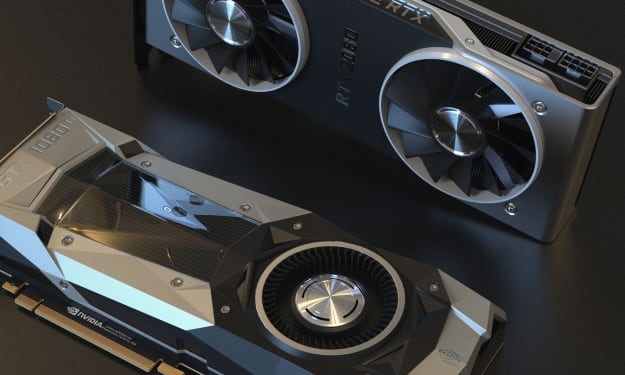The History Of Microsoft In The Gaming Industry
From Software Giant to Gaming Goliath

Microsoft, synonymous with personal computers and ubiquitous software, might not be the first name that pops into your head when discussing video games. Yet, the tech giant has carved a significant niche for itself in the ever-evolving gaming landscape. This article delves into the often-surprising history of Microsoft in the gaming industry, from its tentative early steps to its current position as a major player.
Early Inroads: The Pre-Console Era (1970s-1990s)
While Microsoft's primary focus during its formative years was on operating systems and productivity software, it dipped its toes into gaming as early as the 1970s. The company released a handful of simple games like Adventure and Reversi for the MSX home computer format popular in Japan. These early efforts, however, were more experimental than indicative of a serious foray into gaming.
The 1980s saw Microsoft enter the personal computer gaming market with more established titles like Flight Simulator (1982), a series that continues to be a mainstay for aviation enthusiasts. Age of Empires (1997), a real-time strategy game that redefined the genre, further solidified Microsoft's presence in PC gaming.
However, the console market, dominated by giants like Nintendo and Sony, remained largely uncharted territory for Microsoft. This all changed with the turn of the millennium.
The Birth of Xbox: Entering the Console Arena (2000s)
The early 2000s witnessed a significant shift in Microsoft's gaming strategy. Recognizing the burgeoning popularity of console gaming, the company entered the fray with its first console, the Xbox, in 2001.
The Xbox aimed to compete with the dominant PlayStation 2 by offering powerful hardware, online connectivity (a novelty at the time), and a focus on mature, action-oriented games like Halo: Combat Evolved (2001). While the initial launch was met with some challenges, Halo's success established a strong first-party franchise for Microsoft and cemented the Xbox's place in the console market.
Xbox Live: Revolutionizing Online Gaming (2000s-2010s)
Another crucial element of Microsoft's console strategy was Xbox Live, a subscription-based online service launched in 2002. Xbox Live revolutionized online console gaming, allowing players to compete and connect seamlessly over the internet. Features like downloadable content, voice chat, and online achievements fostered a vibrant online gaming community that helped differentiate the Xbox from its competitors.
The Xbox 360 Era: Refining the Formula (2005-2013)
Building upon the success of the original Xbox, Microsoft launched the Xbox 360 in 2005. Featuring improved performance, a sleek design, and a robust iteration of Xbox Live, the Xbox 360 became a formidable competitor to Sony's PlayStation 3. Franchises like Halo, Gears of War, and Forza established Microsoft as a leader in console-exclusive titles.
However, the Xbox 360's lifespan wasn't without its challenges. The infamous "Red Ring of Death" hardware failure damaged the console's reputation, and Microsoft faced criticism for its initial focus on paid online services. Nevertheless, the Xbox 360 solidified Microsoft's position as a major player in the console market.
The Xbox One and the Quest for Innovation (2013-2020)
The launch of the Xbox One in 2013 marked a significant shift in Microsoft's console strategy. Initially, the Xbox One was positioned as an all-in-one entertainment hub, with features like integrated television and voice control. However, this approach alienated core gamers who felt the focus had shifted away from gaming itself.
Microsoft quickly backtracked, emphasizing its commitment to gaming and unveiling exclusive titles like Titanfall and Forza Horizon 2. Despite a rocky start, the Xbox One enjoyed a successful run, driven by strong first-party titles and continued online service improvements.
The Arrival of Xbox Series X/S and Game Pass: Embracing the Future (2020-Present)
In 2020, Microsoft launched the Xbox Series X/S, boasting next-generation hardware and a focus on backwards compatibility. The company also doubled down on its subscription service, Xbox Game Pass, which grants access to a library of games for a monthly fee. Game Pass has become a game-changer, offering unparalleled value to players and blurring the lines between traditional ownership and subscription models.
Beyond Consoles: Acquisitions and Cloud Gaming
Microsoft's gaming ambitions extend beyond consoles. The company has made significant acquisitions in recent years, including studios like Bethesda Softworks and Mojang Studios (creators of Minecraft). These acquisitions bolster Microsoft's first-





Comments
There are no comments for this story
Be the first to respond and start the conversation.